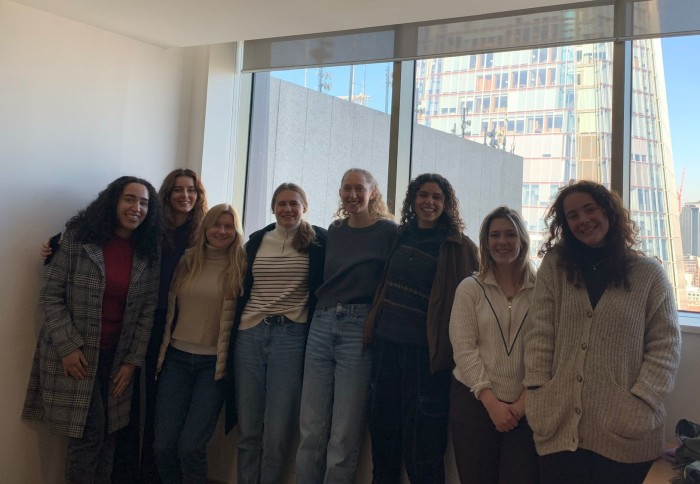Imperial and King’s students explore the wonders of science communication

The Imperial tutors are facilitating group discussions and to helping students refine their ideas
Imperial students are leading a science communication education programme at King's College London.
It has given me an opportunity to utilise the science communication knowledge I’m gaining through my MSc at Imperial, as well as gain valuable teaching experience. Katie Porter Imperial tutor
Nine students from Imperial’s MSc Science Communication and MSc Science Media Production courses are working as graduate teaching assistants at King’s.
The Imperial students are helping to facilitate the delivery of science communication modules for King’s undergraduates.
The modules, called Communicating Science, are available to second- and third-year undergraduates from the King’s Faculty of Life Sciences.
The second-year module introduces students to useful tools for communicating science, including concept maps and newspaper articles, and introduces ideas such as the influence of social media on science communication.
The third-year module introduces students to the philosophical foundations of science communication. In addition, students are paired with a lab and tasked with producing a piece of science communication to promote their work.
The Imperial tutors are working to facilitate group discussions and to help students refine their ideas.
In addition, the Imperial students have had the opportunity to introduce King’s students to their personal favourite aspects of science communication. Through a series of presentations, entitled What Floats Our Boat?, Imperial tutors have explored topics including media narratives surrounding science and the importance of play in science education.
Gaining valuable teaching experience
Katie Porter, one of the Imperial tutors, said: “It has been great to be involved with the modules at King’s. It has given me an opportunity to utilise the science communication knowledge I’m gaining through my MSc at Imperial, as well as gain valuable teaching experience.”
This is the fourth year Imperial students have been involved with the programme.
Laia Mallafré i Martín completed the Communicating Science modules as an undergraduate at King’s, and is now an MSc Science Communication student at Imperial.
She said: “The Communicating Science courses allowed me to discover my passion for science communication and a new point of view from which to explore science.
“For me, it provided a step back to think about the wonder of science from the general public's perspective. Creating media to enable the wider public to enjoy science is a privilege.”
Article text (excluding photos or graphics) © Imperial College London.
Photos and graphics subject to third party copyright used with permission or © Imperial College London.
Reporter
Annalise Murray
Communications Division